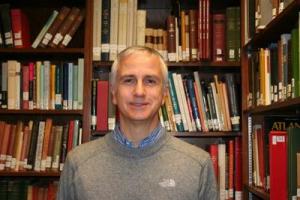非常抱歉,
你要访问的页面不存在,
非常抱歉,
你要访问的页面不存在,
非常抱歉,
你要访问的页面不存在,
验证码:

职称:Professor in the Department of Art, Art History and Visual Studies
所属学校:Duke University
所属院系:Art History & Visual Studies
所属专业:Visual and Performing Arts, Other
联系方式:919) 684-3244
Ph.D. 1993, La Sapienza University of Rome (Italy)
Maurizio Forte, PhD, is William and Sue Gross Professor of Classical Studies Art, Art History, and Visual Studies at Duke University. He is also the founder of the DIG@Lab (for a digital knowledge of the past) at Duke. His main research topics are: digital archaeology, classical archaeology and neuro-archaeology. He was professor of World Heritage at the University of California, Merced, (School of Social Sciences, Humanities and Arts) and Director of the Virtual Heritage Lab. He was Chief of Research at CNR (Italian National Research Council) of “Virtual Heritage: integrated digital technologies for knowledge and communication of cultural heritage through virtual reality systems”, Senior Scientist at CNR’s Institute for Technologies Applied to the Cultural Heritage (ITABC), and Professor of "Virtual Environments for Cultural Heritage" in the “Master of Science in Communication Technology-Enhanced Communication for Cultural Heritage”at the University of Lugano. He received his bachelor’s degree in Ancient History (archaeology), and a Diploma of specialization in Archaeology, from the University of Bologna, and his PhD in Archaeology from the University of Rome “La Sapienza”. He has coordinated archaeological fieldwork and research projects in Italy as well as Ethiopia, Egypt, Syria, Kazakhstan, Peru, China, Oman, India, Honduras, Turkey, USA and Mexico. Since 2010 he is director of the 3D-Digging project at Çatalhöyük. He is editor and author of several books including “Virtual Archaeology” (1996), Virtual Reality in Archaeology (2000), “From Space to Place” (2006), “La Villa di Livia. Un percorso di ricerca di archeologia virtual” (2008), “Cyberarchaeology (2012) and he has written more than 200 scientific papers. He got several international awards such as the Best paper award at VSMM 2002, 2010; E-content Award 2005, 2008; Tartessos Prize on Virtual Archaeology (2010).